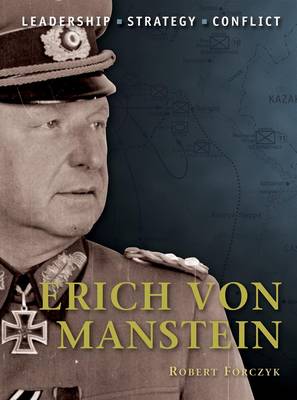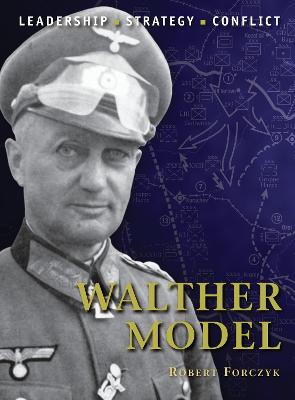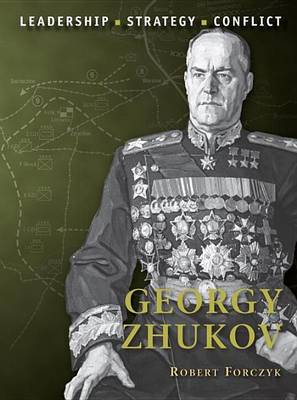Command
3 primary works
Book 2
Erich von Manstein was one of the most successful German commanders of World War II. His military mind proved outstanding in many a conflict but perhaps his greatest triumph was his ingenious operational plan that led to the rapid defeat of France in May 1940. Manstein also showed great skill under adversity by commanding a furious rebuff to the Soviet armies in 1943, whilst Germany were retreating. However, his skill could not reverse Germany's declining fortunes and Manstein's frequent disagreement's with Hitler over military strategy led to his dismissal. Robert Forczyk tells the story of one of Germany's most valuable military talents, from his early years to his post-war conviction and his later career.
Book 15
This volume details the military career and accomplishments of Walther Model, the youngest Generalfeldmarschall in the Wehrmacht in World War II and Hitler's favourite commander. Model was a tough and tenacious commander, particularly when on the defensive, and his career rise was virtually unprecedented in German military history. Model really made his mark late in the war, when time was already running out for the Third Reich, but time and again he was rushed from one crumbling front to the next and succeeded in temporarily restoring the situation. Above all, Model deserves recognition as one of the great defensive commanders of modern military history.
Book 22
Zhukov was the dominant figure in the Red Army during World War II even though his actual job title varied from day to day. Serving as a senior General Staff representative from the Stavka, Zhukov moved from one critical sector to the next, serving as advisor, coordinator and de facto front commander as required. There is no doubt that Zhukov played a critical role in salvaging the critical situation in the autumn of 1941 and leading the Red Army to an amazing reversal of fortunes in 1942-43 and eventual victory in 1944-45. However, Zhukov's methods were brutal and contributed to massive Soviet casualties, while he continued to keep his hand in political affairs as well. As the most recognized Soviet soldier of World War II, Zhukov's post-war fall from grace was precipitous and it was not until the fall of the Soviet Union that his reputation was restored. This book presents a analysis of Zhukov's military career, highlighting the strategies and tactics that made him such as successful military leader.


